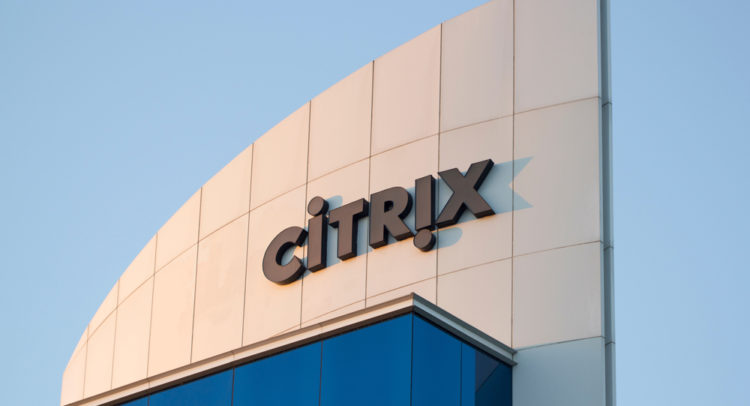In January, U.S. investment management firms Vista Equity Partners and Elliott Investment Management agreed to privatize Citrix Systems (CTXS) through a leveraged buyout (LBO) transaction. However, the current market conditions have delayed the transaction as the cost of debt rises. I am neutral on the stock.
Meet Your ETF AI Analyst
- Discover how TipRanks' ETF AI Analyst can help you make smarter investment decisions
- Explore ETFs TipRanks' users love and see what insights the ETF AI Analyst reveals about the ones you follow.
The deal is valued at around $16.5 billion, including debt, and shareholders will receive cash of $104 per share. As a result, Citrix stock has shown marginal changes in terms of price action since. Indeed, CTXS has hovered around a range of $100 to $101 per share since the acquisition was announced.

Challenging Credit Market Conditions Could Impact the LBO’s Success
Credit conditions have become particularly challenging for the banks, potentially hampering their ability to make a profit by backing the transaction. The cost of money has increased since the Federal Reserve began raising interest rates. In addition, growing recession fears are weighing on the banks that act as intermediaries in offering the bond to the community of investors. As a result, this could affect the success of the LBO.
The deal was expected to close between late June and early July 2022 but is taking longer than anticipated as banks look for more efficient ways to get the LBO through challenging credit market conditions. Indeed, it is likely that significant changes will need to be made to the original financing plan in order to attract more investors.
Interest from private credit funds has fallen, as the amount of money that investors are willing to commit to the deal has declined. In addition, some are only interested in providing funding if it’s at a steep discount to face value.
Meanwhile, the portion of debt provided by the banks will likely be in the form of a ‘term loan A,’ meaning that debt will be repaid evenly (including the principle amount) throughout the amortization period.
Combined Entity is Expected to Realize $500M in Additional EBITDA
If the deal goes through, the acquisition will see Citrix be combined with another company called Tibco, which is owned by Vista Equity Partners. On their own, Citrix generates $1.1 billion of EBITDA whereas Tibco’s EBITDA is $500 million. Nevertheless, it is expected that the combined entity will generate $2.1 billion in EBITDA due to cost savings.
This is good news because when it comes to Citrix’s financial strength, some aspects of its balance sheet could be cause for concern. Although Citrix’s total assets of $6.9 billion exceed total liabilities of $6.2 billion, the Altman Z-Score of 2.79 indicates a gray area. That means the company is actually in some sort of financial stress, and while low, there is a risk of bankruptcy that could materialize in a few years.

By being able to generate an additional $500 million in EBITDA from cost savings alone, it will help improve the overall risk profile of the combined entity. This is especially helpful since the leveraged buyout will pile on a lot of additional debt onto the company’s balance sheet. However, with an interest coverage ratio of 5.18, the company should be able to easily absorb the interest cost of the additional debt.
Investor Considerations before Financing the Acquisition
There are some aspects that investors will need to consider before lending to the company – elevated inflation and rising interest rates. Inflation, which the Federal Reserve wants to slow down by raising interest rates, will likely remain above the 2% target even after the Fed Funds rate rises above neutral. This is because the rapid rise in prices of goods and services looks quite entrenched.
As a result, the yield on the debt should provide a return that justifies the risk of asset devaluation due to high inflation. Bonds and other fixed-income securities are particularly vulnerable to inflation.
When it comes to rising rates, the Federal Reserve’s continued aggressiveness will gradually increase borrowing costs in the future. Keeping this in mind, the investor must judge the competitiveness of the return rate on this debt and compare it with other forms of investment available.
Conclusion – Limited Upside Doesn’t Justify the Risk
Through a leveraged buyout, two U.S. investment companies plan to acquire Citrix Systems, Inc. and take it out of the stock market. However, the closing may be delayed due to the challenging credit conditions required to support the LBO. In a worst-case scenario, the deal may fall through if there isn’t enough interest from investors to finance the deal. As a result, the upside potential doesn’t justify the risk.
















